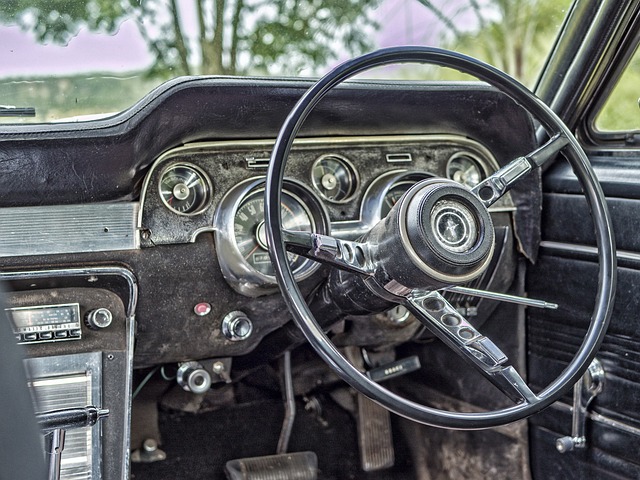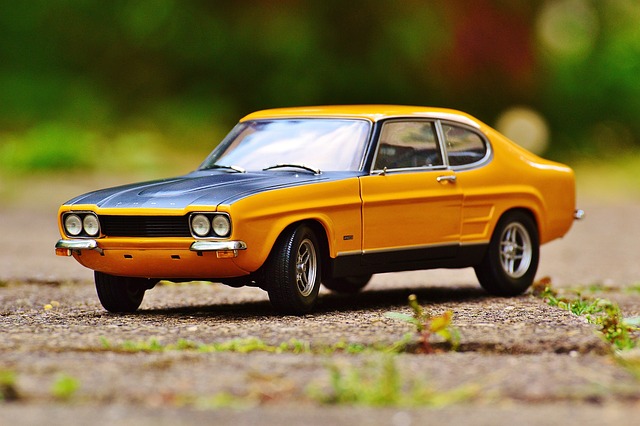Looking to register your car in California? Our step-by-step guide makes the process simple. First, understand the California vehicle registration requirements. Gather essential docs, including proof of ownership and insurance. Use a DMV VIN verifier to confirm your vehicle’s unique identification number, ensuring accuracy. You can complete the registration online or visit a DMV office. Pay fees, receive your papers, and hit the road legally!
- Understanding the California Vehicle Registration Process
- Gather Required Documents for Car Registration
- How to Verify Your Vehicle's VIN (Vehicle Identification Number) with DMV
- Complete the Online Registration Application or Visit a DMV Office
- Pay the Necessary Fees and Receive Your Registration Papers
Understanding the California Vehicle Registration Process

Understanding the California Vehicle Registration Process
In California, registering a car involves several steps that can seem intricate but are designed to ensure safety and security on the roads. The process begins with gathering essential documents and verifying the vehicle’s identity through its unique Vehicle Identification Number (VIN). A reliable VIN verifier, such as a mobile VIN verifier or even a simple online check, is crucial for this initial verification step. This ensures that the car isn’t stolen, has valid emissions and safety inspections, and meets all necessary legal standards.
After confirming these details, you’ll need to visit a local Department of Motor Vehicles (DMV) office with your vehicle and required paperwork. The DMV will conduct an inspection to ensure your car complies with California’s safety and emission regulations. Once approved, they’ll issue a registration certificate and license plate, completing the process. It’s important to note that timely registration renewal is essential to avoid penalties and maintain legal driving status. For convenience, many Californians opt for mobile VIN verification services or even conduct initial checks online as part of their preparation.
Gather Required Documents for Car Registration

Before you start the car registration process in California, make sure to gather all the necessary documents. The key document you’ll need is a valid Vehicle Identification Number (VIN) verifier, which can be obtained through the Department of Motor Vehicles (DMV) or a trusted mobile vin inspection service. This VIN number is unique to your vehicle and acts as a digital fingerprint, ensuring the car’s authenticity.
Additionally, prepare other essential paperwork such as the title or registration certificate from the previous owner, proof of insurance, and a completed application form for registration. It’s advisable to check with the DMV or consult their website to obtain the latest forms and understand any specific requirements, especially if you’re registering a vehicle out-of-state or have unique circumstances.
How to Verify Your Vehicle's VIN (Vehicle Identification Number) with DMV

Verifying your vehicle’s VIN (Vehicle Identification Number) is a crucial step in the car registration process in California. You’ll need to ensure the number is accurate and match the make, model, and year of your car. The DMV offers several methods to do this, with one convenient option being a mobile vin inspection or mobile vin verification. By using a licensed professional equipped with specialized tools, you can easily confirm your VIN’s authenticity from the comfort of your home or even while you’re on the road.
A mobile vin verifier is particularly useful as it eliminates the need to visit a DMV office. This service allows you to transmit your VIN to a certified specialist who will cross-reference it with their database and provide you with an official verification report. This ensures that your vehicle’s details are up-to-date and accurate, streamlining the registration process and saving you time and potential headaches down the line.
Complete the Online Registration Application or Visit a DMV Office

You can start the car registration process in California either online or in person at a DMV office. Completing the Online Registration Application is a convenient and efficient way to go, as it allows you to enter your vehicle information digitally, including the Vehicle Identification Number (VIN). A DMV VIN verifier ensures that the details you provide are accurate and match the data in their system.
If you prefer a more traditional approach or need assistance with any part of the process, visiting a DMV office is an option. There, you can fill out the required forms for registration, and a representative will guide you through the steps. They also offer services like mobile VIN verifier and vin inspection for your convenience, ensuring that every aspect of registering your vehicle is handled correctly.
Pay the Necessary Fees and Receive Your Registration Papers

After completing your vehicle’s inspection and ensuring it meets all safety standards, the next step is to pay the required fees. This process varies slightly depending on whether you’re registering a new or used car. Generally, you’ll need to cover registration costs and a document fee for your California Vehicle Registration. The Department of Motor Vehicles (DMV) Vin Verifier plays a crucial role in this phase by ensuring the vehicle’s unique identifier, the Vehicle Identification Number (VIN), is accurate and matches the details on file.
You can opt for traditional methods by visiting a local DMV office or choose a more convenient option like mobile VIN verification and inspection services. These services allow you to complete the VIN inspection from the comfort of your home, saving time and effort. Once the fees are paid and the VIN is verified, you’ll receive your official registration papers, marking the successful completion of another step in registering your vehicle in California.
Registering your car in California is a straightforward process that can be completed online or at a DMV office. By understanding the requirements, gathering necessary documents, and verifying your vehicle’s VIN using a trusted DMV vin verifier, you’ll be well on your way to securing your vehicle’s registration. Remember to pay all applicable fees and receive your official registration papers for smooth sailing on California’s roads.
